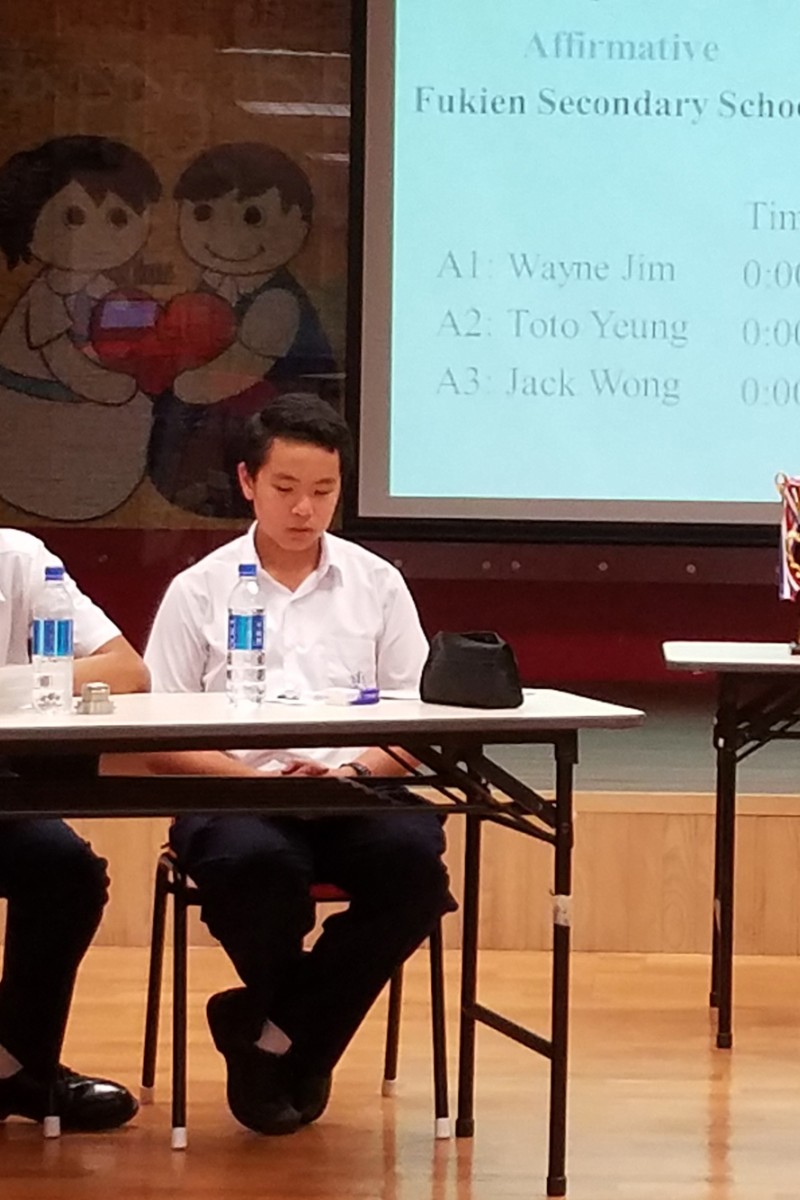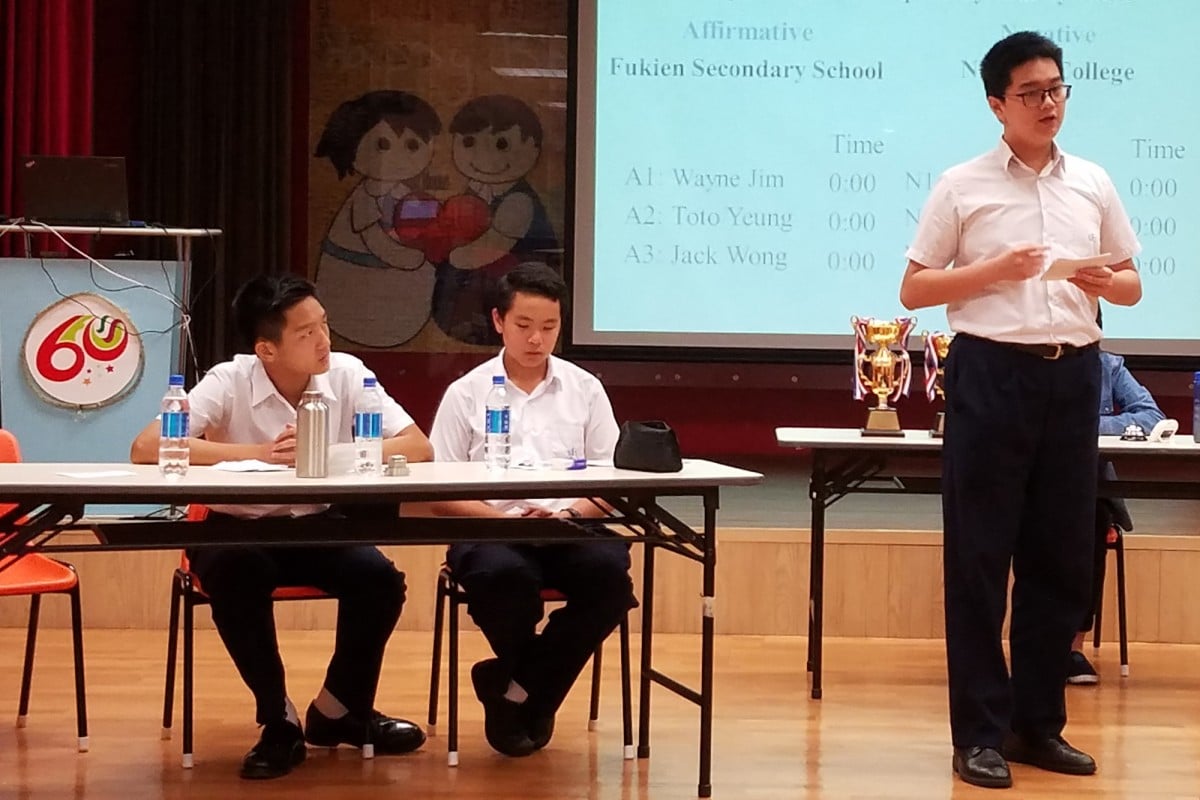
How to be a great debater even if English isn’t your first language
Debating in English may pose an extra challenge for CMI schools, but language barriers don’t have to stop you from making a winning argument
 Jack Wong from Fukien Secondary School speaks during a Hong Kong Secondary Schools Debating Competition.
Jack Wong from Fukien Secondary School speaks during a Hong Kong Secondary Schools Debating Competition.Standing up and defending an argument in front of a crowd is no easy feat. It can be even more intimidating if you have to speak in English, especially if the medium of instruction at your school is Chinese. Speakers can feel at a disadvantage if they had less exposure to English.
From my experience of working with debaters from CMI schools, I have noticed that they are no less competent than their counterparts from EMI schools in developing arguments. It is just that they may not be able to exactly convey the level of depth they intended to if they are required to deliver their speeches in English. When it comes to debating, additional factors like nerves or stage-fright might mean their arguments or rebuttals don’t come out as clearly as they had planned.
There is no greater frustration than being hindered by language barriers. But that doesn’t mean you can’t overcome these barriers and win a debate. Here are a few areas that CMI schools can focus on in preparing for debates.
Focus on the “how” and “why”
The first tip applies to debaters in general. In explaining your arguments, always ask yourself two questions: “How does this happen?” and “Why is this important?” The “how?” helps you construct a clear and logical step-by-step explanation of your points; the “why?” enables you to explain their impact and importance. Bearing these two questions in mind can help you build your argument in a way that is clear to both you and the judge.
Know your lingo
Make sure to write your speeches using language that you are comfortable with. I have come across debaters struggling to pronounce fancy words or debate jargon in their speeches. Not only does this hinder the judge’s understanding about the arguments, it also disrupts the flow of delivery and undermines your confidence as a debater. Of course, this is not to say that you should pass up the opportunity to expand your vocabulary through debating, but it’s best to strike a balance. Remember, ideas come before rhetoric. If you don’t know the pronunciation of certain words in your speech, make sure to look up the correct way to say them beforehand.
Practice makes perfect
Practise your speeches until you can reel them off easily. Remember that, ultimately, you are persuading the judge that your side is right. Sounding confident adds to your sense of conviction and makes the judge think that you believe what you’re saying. This will make the judge more likely to buy into your arguments. You might want to write some notes on your notecard to remind you of little details you need to pay attention to in your speech. Then, practise until you can deliver it accurately and confidently.
Be prepared
Think about what your opponents will say and prepare for rebuttals. For debaters from CMI schools, it may be particularly challenging to come up with rebuttals to the other side’s points on the spot, not to mention deliver them effectively in English.
The way to handle this is to try to predict what the opponents’ arguments will be and think of ways to respond to them before the match. You may even have a stack of notecards with nothing but rebuttals against their case. Being prepared beforehand will help put your mind at ease. But be careful: this does not mean that you can always completely pre-empt what the other side will say, because chances are there will always be some ideas that you missed.
Debating might seem scary at first glance, but it can transform the way you think and how you approach world issues. Give debating a try and you won’t regret it.
To find out more about debating, visit the Hong Kong Secondary Schools Debating Competition website.
To enter a team in the 2017/18 Term 2 Competition, contact Hong Kong Secondary Schools Debating Competition Coordinator Stan Dyer at hkssdebating@gmail.com.
Debating bio: Yuetka is studying English Literature and Education at the University of Hong Kong. She has represented HKU at various local and international debating tournaments and has coaching experience at primary and secondary schools. She was also a presenter at HKSSDC Motion Analysis Workshops over the past two years.
